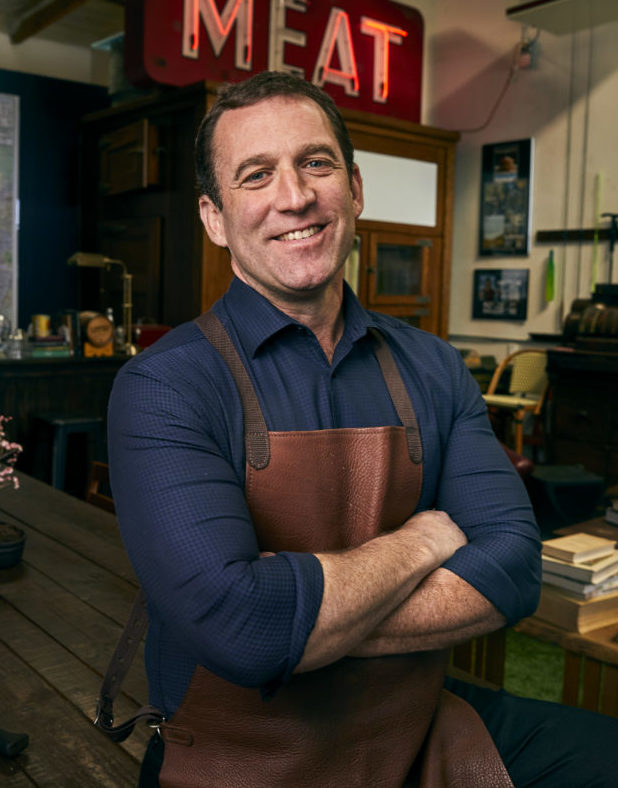A Chef Shares His Tips on Tackling the Most Common Grill Mistakes
Barbecuing seems so easy. You fire up the grill, throw on some meat, and hope and pray for those perfectly grilled char marks (and flavor) in the end. But seeming simplicity can fail sometimes. In fact, sometimes it’s the simpler things that wind up seeming more complicated. Barbecuing is one of those things. It’s simple, but it’s also science, and there are some fundamental techniques that are key to kick your barbecuing game up a notch or three.
To tackle the most common mistakes head on, we reached out to Chef Adam Perry Lang, grilling guru and owner of the award-winning, LA-based steak restaurant, APL and the creator of a new sauce and spackle collection for Williams Sonoma.
Here Adam shares with us the most common barbecue mistakes the home cook makes and how to fix them as well as the difference between barbecue sauce and spackle, whether to brine or marinate, and his favorite barbecue trick from way back in the day.
Not Cleaning the Grill Grates
When you grill frequently, it's easy to get lazy about cleaning the grill grates between sessions. (Oh, I'm just going to fire it back up tomorrow! Sound familiar?) But, according to Lang, cleaning the grill grates is an essential first step to getting the best results. Always clean the grill grates first and make sure to oil your protein or grates before applying, he says.
Grates that haven't been given the scrub down can cause your meat to stick to the grill and, over time, can make the grates heat up less efficiently. For really tough jobs, we recommend the Grand Grill Daddy, a brush that uses the power of steam and stainless-steel brushes to scrub your grill grates to sparkling perfection.
Moving Your Meat Too Quickly
If there’s one mistake we’re all prone to making it’s the temptation to move or flip meat too quickly. This stems from a fear that your meat will overcook, a problem that none of us want to have. But the issue with this approach is that “your protein will tear, losing those juices that keep meat tender and succulent,” says Lang.
Fight the urge to move your meat and instead test doneness by pressing it lightly (but not too hard so you retain those juices!) with your tongs or spatula, then flip once when it’s ready.
Using Barbecue Sauces the Wrong Way
While barbecue sauce can be used at any step in the grilling process, it’s actually best when applied during the grilling process so that it has a chance for the flavors to soak into the meat, caramelizing it in the process. Add it too soon and the sugars in the sauce may burn, adding an unappetizing flavor to the meat. The point of barbecue sauce is that it keeps your meat moist and tender, adding flavor without overpowering it.
Spackle, on the other hand, is a thicker, more intensely flavored sauce with some texture that you spread with a knife after your meat is grilled, says Perry. Think of it more like a condiment you use to add more flavor and texture to your meat right before you eat it.
Not Brining
To brine or not to brine that is the age-old question. You may often think of brining non-grilled proteins like chicken or turkey around the holidays, but it’s actually a great technique before tossing your meat on the grill too. Unlike barbecue sauce or a traditional marinade, brines are water- and salt-based solutions with no acid, providing a level of juicy, succulence to meat.
Perry suggests brining leaner cuts of meat since it will keep them moist in the absence of extra fat. Marinading, on the other hand, is better for fattier cuts of meat.


